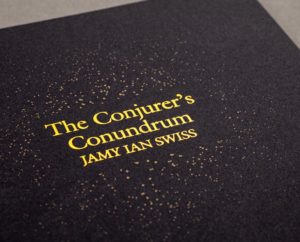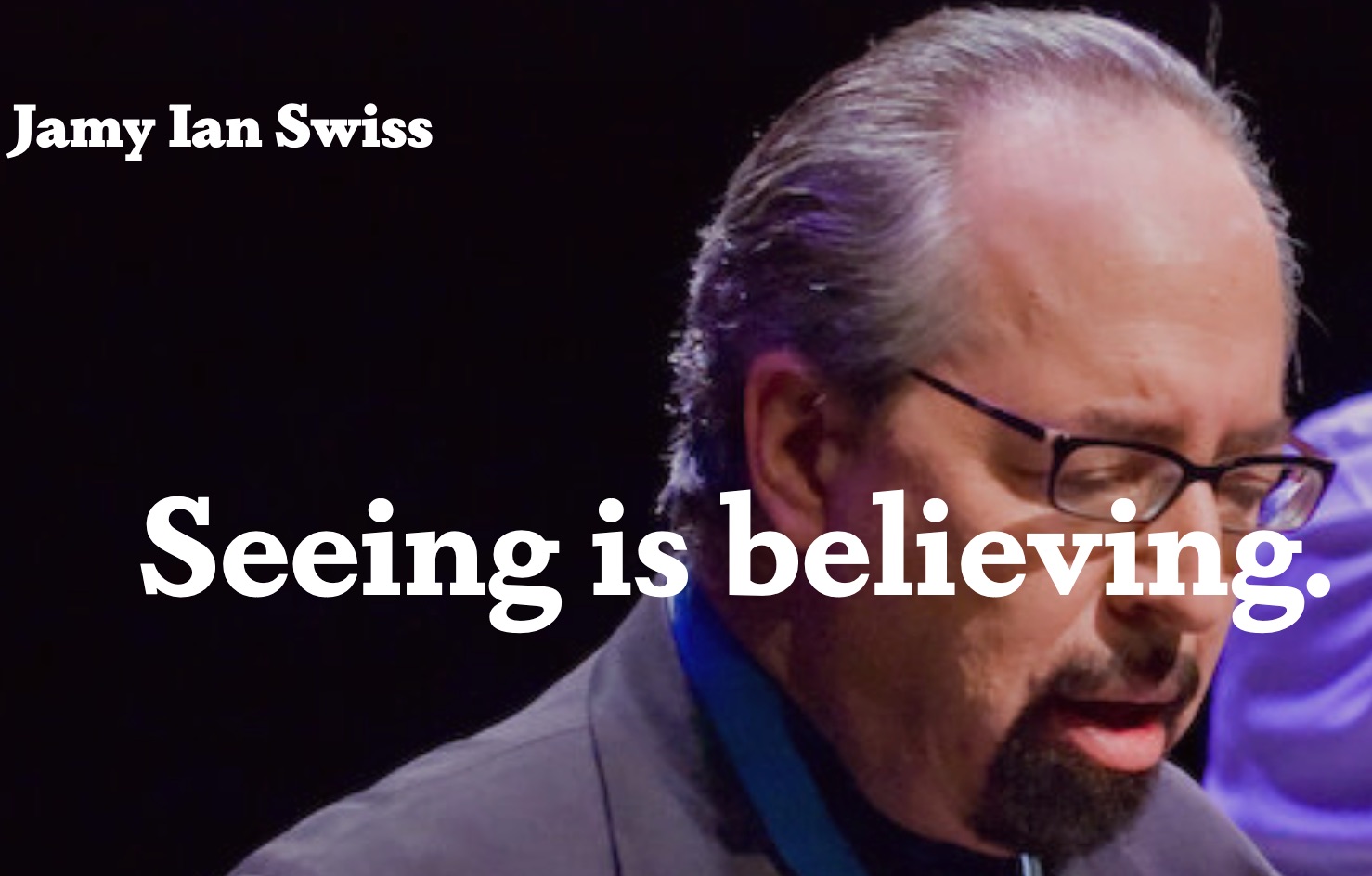I’m excited to present an opportunity to learn from Jamy Ian Swiss, author of The Conjurer’s Conundrum.

On May 18 at 2:00pm PDT, Jamy will join me for a webinar featuring empathy, honest deception, critical thinking, and scientific skepticism. There is space for 100 attendees, and you can register by clicking HERE. You can also read more about the event and Jamy below. If you’d like to contribute questions in advance, please send them along, and if you have a schedule conflict, don’t worry – let me know and I’ll send you a link in coming weeks with the recording and annotated notes. Hope you can join us!
All the best,
David
JAMY IAN SWISS ON CRITICAL THINKING, SCIENTIFIC SKEPTICISM, AND THE MAGIC OF LEARNING
As Marshall McLuhan famously observed, “Anyone who tries to make a meaningful distinction between education and entertainment doesn’t know a thing about either.”
Jamy Ian Swiss is living proof. The author of The Conjurer’s Conundrum, Jamy is a world-class magician who has appeared on Brain Games and The Late Late Show. Jamy has consulted for Neil Gaman, Amanda Palmer, and Penn & Teller, among others. He has also performed at the Smithsonian Institution, The Magic Castle in Los Angeles, and he created Monday Night Magic, the longest running off-Broadway magic show in New York City.
These are impressive credentials, but there is more here than meets the eye. According to Jamy, most magicians fall in love with magic somewhere around 7-10 years old. Of course, lots of people fall in love with lots of things around that age, but the magicians are the ones who stick with it.
Some magicians become skilled practitioners; and within the community of practicing magicians, there is an even smaller group, comprised of those who seek the inner circle. These are the magicians who embrace the practical demands, historical legacy, and culture of magic entirely. When you learn about the lives and practices of people like Ricky Jay or Richard Turner, among others, you realize that magicians are some of the most dedicated learners and teachers in human history.
Anyone who tries to make a meaningful distinction between education and entertainment doesn’t know a thing about either. -Marshall McLuhan
I’ve often said that learning is magic. It is equally true that magic is learning.
The practice and history of magic also carries some important lessons for us in today’s world. As Jamy writes in The Conjurer’s Conundrum, “We can all be fooled.”
Card tricks and sleight of hand are undeniable reminders that we don’t know what we don’t see. As one of my students put it in Academy of One, “Magic is like that. You think you’re paying attention to something, and then you realize that you’re not really getting the whole picture. Your mind talks you into believing what you’re seeing. It’s like when you’re walking on stairs in the dark, and you think there’s another stair. But you take the step and there’s nothing there; your foot finds only empty space, or the floor jumps up and trips you.”
Please join Jamy and me for a conversation about learning, critical thinking, deception and delusion, scientific skepticism, and rational inquiry. Register HERE.
